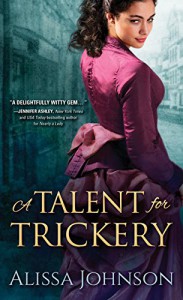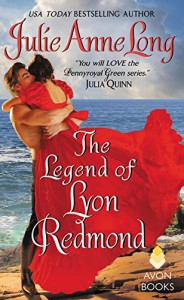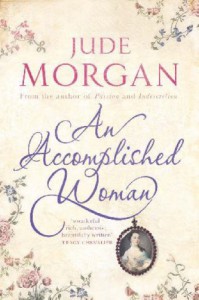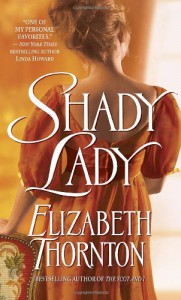
The storyline was fairly interesting and the heroine Clarice had an interesting background as the unfairly disgraced daughter of a marquess living in the country as, essentially, the housekeeper of a cousin of hers who is a parish rector and military historian. The hero Jack is a baron who returns to his country estate, near the house where Clarice lives, after 13 years away at the wars, although he spent the war as one of those dreaded "Regency spies". Clarice and the rector get inadvertently involved in some obscure scheme by an unnamed "traitor" (I guess this guy is only unmasked in the last book in the Bastion Club series) and Jack is of course the perfect guy to save them from this plot.
There were a few things that really bothered me with the book, but I managed to finish it anyway. First of all, in typical Laurens fashion, Jack and Clarice are super-humans. Clarice is constantly and annoyingly described as having "regal" stature - this is one of the things that apparently Jack admires about her the most. However, most of the queens of England in the last couple of centuries have been tiny in stature - Victoria, the current queen Elizabeth II, her mother Elizabeth - if "regal stature", i.e. well above-average height, was a requirement for being a queen, they would be disqualified!
Secondly, Clarice and Jack engage in a great deal of boringly and lengthily described unprotected sex, with no mention of the possibility of pregnancy, and with Clarice having no intention of marrying Jack until near the end of the book. This just put me right off - the concern of possible pregnancy would surely have been at the top of Clarice's and Jack's mind considering the time-period of the story, and should have been dealt with by the author instead of being completely ignored. Maybe Jack and Clarice, being super-human, could just decide mentally that pregnancy won't happen unless they want it to happen ...
Thirdly - in several places in the book the author ascribes Jack and Clarice's attractiveness and super-humanness to their class, i.e. the English aristocracy. In one sense this is correct for the time-period - England was an extremely class-based society at that time (and still is, but to a lesser extent), so it's very likely that neither Jack nor Clarice would consider as a colleague or friend or romantic partner anyone who was not born into the aristocracy. But to say that the hero and heroine are attractive and wonderful in all ways because they are aristocrats is ridiculous and rather ugly in the 21st century.
 1
1
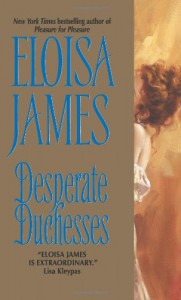


 2
2

